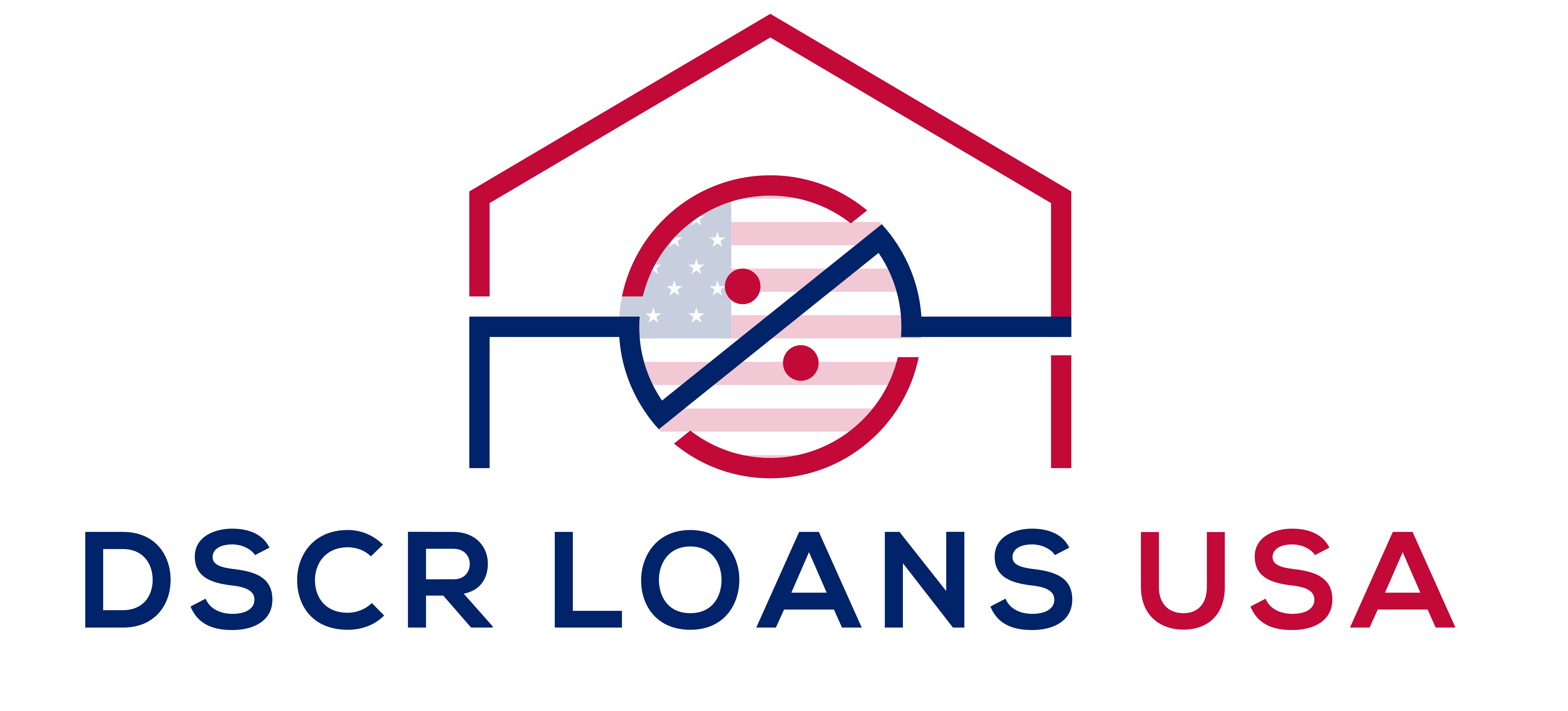Ready to secure a DSCR loan in Missouri for your next real estate venture?
Cut through the complexity with our concise guide on how to get DSCR loan Missouri, detailing the precise steps from eligibility to final approval. Catered to Missouri’s market, we provide you with the insider knowledge to navigate documentation, select the best lender, and strategically manage your investment properties.
Key Takeaways
- DSCR loans in Missouri focus on property cash flow rather than personal income, using the Debt Service Coverage Ratio to determine loan eligibility, which allows broader access to financing for real estate investors.
- Investors must prepare thorough documentation and understand loan terms, such as minimum DSCR accepted and credit score requirements, to secure favorable DSCR loans and effectively navigate the Missouri real estate market.
- Managing fluctuations in the rental market is critical for sustaining DSCR loan obligations, with strategies such as interest-only payments, home equity lines of credit, and prioritizing tenant retention to maintain consistent rental income streams.
Understanding DSCR Loan Mechanics in Missouri

DSCR loans have revolutionized the investment landscape in Missouri. What makes them stand out is their unique focus on property cash flow over personal income, giving investors the leverage they need to secure financing based on their properties’ income potential. This approach opens up opportunities for first-time investors to qualify for a DSCR loan in Missouri, creating a more inclusive and accessible real estate market.
In this context, the Debt Service Coverage Ratio (DSCR) becomes a pivotal financial metric. It compares the cash flow generated by the property to its mortgage obligations, providing a clear snapshot of the property’s ability to sustain its debt. This focus on the property’s cash flow potential over the personal income of the investor is a significant shift in loan considerations and a revolutionary stride in the financing landscape.
The Role of Net Operating Income in DSCR Loans
The role of net operating income in DSCR loans cannot be overstated. In Missouri, lenders place primary importance on the income generated by the property in question rather than the borrower’s personal income. Why, you might ask? The answer lies in the direct assessment of the property’s ability to cover debt service. DSCR offers a more accurate and relevant measure of this ability, making it a central component in the loan decision. As a result, personal income verification becomes less significant in this context.
Given this focus, potential borrowers need to ensure that their properties are capable of generating substantial income. Remember, the income from your property is the key to unlocking DSCR loans in Missouri.
Evaluating Your Property’s Cash Flow for Loan Eligibility
Evaluating your property’s cash flow is a vital step in determining loan eligibility. A Debt Service Coverage Ratio (DSCR) greater than 1 means that the property or business generates sufficient income to meet its debt payments. This indicates a healthy financial position. In practice, a minimum property cash flow of 25% above expenses is commonly required to qualify for a DSCR loan.
Even if your property is vacant, appraisers determine a property’s rental income potential through a comparable rent schedule, which influences the DSCR calculation. Therefore, it’s essential to maintain a clear understanding of your property’s rental income potential.
The Impact of Loan Terms on Your Investment Strategy
Loan terms can significantly impact an investor’s strategy, making it essential to understand the implications. To secure favorable loan terms, investors should aim for a DSCR above 1.3. This creates a comfortable cushion above the minimum lender requirements and ensures the integrity of their investment.
DSCR loans in Missouri come with both fixed and variable interest rate options, giving real estate investors flexibility in managing interest costs over time. Additionally, many DSCR loans offer 30-year terms, often with fixed rates that last for the entire term. This allows investors to plan their financial strategies with predictable payments, a significant advantage in the ever-fluctuating real estate market.
Step-by-Step Guide to Securing a DSCR Loan in Missouri

Securing a Missouri DSCR loan can be a straightforward process if you know the steps to follow and meet the dscr loan missouri requirements. The swift approval process of DSCR loans is a facilitator for acquiring rental properties in the state. Given the affordable real estate market and the quick turnover of properties, investors benefit from Missouri’s quick DSCR loan approvals.
However, to fully capitalize on this, you need to assemble your required documentation quickly and efficiently. The critical nature of this fast approval process necessitates a well-prepared application. Let’s walk you through this process, from preparation to approval, to help you acquire investment properties swiftly and effectively.
Preparing Your Documentation and Financials
Before you embark on your DSCR loan application, your documentation needs to be in order. The required documents for DSCR loan applications include the property’s net operating income, appraisal reports, and if applicable, LLC documents like Articles of Organization and Operating Agreements.
When applying for DSCR loans in Missouri, it is crucial for investors to prepare and organize all the necessary documents to ensure a smooth application process. A well-organized application not only saves you time but also increases your chances of loan approval. Partnering with a reliable security service can help streamline this process and safeguard your sensitive information.
Calculating Your DSCR: A Practical Example

Calculating your DSCR is a pivotal step in the process. DSCR is calculated using the property’s gross rental income and total debt service, which includes the principal, interest, taxes, property insurance, and association dues if applicable. Essentially, you divide the property’s monthly rental income by its monthly expenses to compute the DSCR.
For instance, if you have a rental property renting for $1,500 per month and monthly expenses of $1,000, your DSCR would be 1.5. Some lenders may offer DSCR calculators to help applicants determine their eligibility, making the process even more straightforward.
Selecting the Right Lender for Your DSCR Loan Needs
Selecting the right lender for your DSCR loan needs is as vital as having a feasible business plan. The eligibility and terms for DSCR loans in Missouri can vary significantly between lenders, offering flexibility for investors with different strategies and requirements.
When selecting a DSCR lender in Missouri, investors should consider the following criteria:
- Minimum DSCR accepted
- Credit score requirements
- Down payment percentage
- Loan amount limits
Understanding these differences in loan conditions and aligning them with your investment profile and objectives is essential to secure favorable DSCR loan terms.
Navigating Missouri’s Real Estate Market with DSCR Financing
Navigating Missouri’s real estate market with DSCR financing can help investors capitalize on the state’s growing rental market. DSCR loans provide notable advantages for property investors in Missouri, especially in metropolitan areas like Kansas City where the rental market is robust. With the real estate market experiencing rising property values and limited inventory, prompt and well-prepared documentation for securing DSCR loans is crucial.
Missouri’s stable rental market is bolstered by a diverse economy and low unemployment rates, highlighting the need for lenders that are familiar with the local economic conditions when considering DSCR loans. In essence, DSCR financing can be your secret weapon in conquering Missouri’s real estate market.
Identifying Investment Hotspots in the Show Me State

Identifying investment hotspots in Missouri can help Missouri real estate investors maximize their rental income potential and capitalize on economic growth. Missouri’s steady economic growth and affordable living costs create a favorable environment for investment property, making it a strategic choice for investors seeking rental income.
St. Louis and Kansas City are prime locations for real estate investment in the Missouri real estate market due to their high rental income potential and economic growth. Some of the neighborhoods that offer diverse attractions and are hotspots for investment include:
- Crestwood
- Tower Grove South
- Maplewood
- St. Peters
- Central West End
- Downtown St. Louis
With over half of St. Louis’s population being renters and the city experiencing low housing inventory, DSCR loans can facilitate investors to capitalize on the high rental demand by providing the necessary financing.
The Synergy Between DSCR Loans and Rental Property Growth

DSCR loans and rental property growth in Missouri are synergistic, providing investors with the financial leverage needed to expand their real estate portfolios. DSCR loans are well-suited to the unique features of the Missouri market, offering real estate investors key benefits in the region such as:
- Lower down payment requirements
- Higher loan amounts
- Competitive interest rates
- Flexible repayment terms
These advantages make DSCR loans an attractive option for investors looking to capitalize on the rental property growth in Missouri.
Investors can leverage current trends in Missouri’s real estate market using DSCR loans to capitalize on opportunities. Even first-time investors in Missouri have access to DSCR loans, often with requirements such as lower leverage or higher credit scores. This synergy can be a significant catalyst for your investment growth in the Show Me State.
Overcoming Common Hurdles in the DSCR Loan Journey
While DSCR loans offer numerous advantages, investors must be prepared to navigate some common hurdles. High-interest rates due to market uncertainty and constraints in institutional capital funding are currently a challenge for investors seeking DSCR loans. Moreover, stiff prepayment penalties, often involving a 5-year step down, are a potential obstacle for investors considering DSCR loans.
Another common hurdle is the requirement for a larger down payment for DSCR loans on investment properties in Missouri, reflecting the higher risk of default compared to primary residences. However, with the right strategies and understanding, these hurdles can be overcome.
Dealing with Fluctuating Rental Markets
Dealing with fluctuating rental markets requires investors to implement strategies to maintain consistent rental income and manage cash flow effectively. DSCR lenders may offer interest-only or adjustable-rate mortgage options that can help investors manage their cash flow and maintain mortgage payments during periods of rental market instability.
In situations where rental income is not sufficient, investors might consider a home equity line of credit or reaching out to private lenders as a strategy to cover mortgage payments amidst market downturns. Keeping rental properties well-maintained is crucial for retaining tenants and reducing turnover, which in turn helps to sustain a consistent rental income.
Implementing incentives for lease renewals and ensuring effective advertising can prevent vacancies, thereby upholding a steady rental income stream despite market fluctuations. Investors need to be equipped for challenges such as increased vacancy rates, potential property damage, and wider market fluctuations that could adversely impact rental income.
Balancing Down Payment and Loan Amount Considerations
Balancing down payment and loan amount considerations involves understanding loan-to-value ratios and leveraging strong creditor qualifications to negotiate better loan terms.
Here are some key points to consider:
- Loan-to-value ratios for DSCR loans typically range between 75% to 80%
- This directly impacts the minimum down payment required
- It also impacts the total loan amount an investor can receive
By understanding these ratios and qualifications, you can make informed decisions about your down payment and loan amount.
Strong creditor qualifications, including a high credit score, a favorable debt-to-income ratio, and adequate cash reserves, may enable investors to negotiate better loan terms or lower down payment requirements. Balancing these considerations is essential for securing a DSCR loan that fits your investment needs and goals.
Summary
As we wrap up, it’s clear that DSCR loans offer a unique opportunity for real estate investors in Missouri. With their focus on property cash flow over personal income, they provide a more inclusive and accessible platform for first-time investors. Coupled with Missouri’s robust rental market and investment hotspots, DSCR loans can be a game-changer for your real estate portfolio.
Whether you’re a seasoned investor or just starting, understanding the mechanics of DSCR loans, navigating the real estate market with DSCR financing, and overcoming common hurdles can steer you towards successful real estate investment. Remember, your property’s potential is the key to unlocking opportunities with DSCR loans in Missouri. So, are you ready to capitalize on your property’s cash flow?
Frequently Asked Questions
What is a DSCR loan?
A DSCR loan prioritizes the income-producing potential of properties over the personal financial history of borrowers, making it a favorable option for property investors.
How is DSCR calculated?
DSCR is calculated by dividing the property’s monthly rental income by its monthly expenses. This helps to determine the property’s ability to cover its operating expenses and debt service. You can improve your DSCR by making strategic adjustments.
What are the requirements for a DSCR loan in Missouri?
To qualify for a DSCR loan in Missouri, you need to meet key requirements such as providing the property’s net operating income, appraisal reports, and relevant LLC documents. These may include Articles of Organization and Operating Agreements.
What are some investment hotspots in Missouri?
Consider focusing on real estate investment in St. Louis and Kansas City, as they offer high rental income potential and are experiencing economic growth.
What are some common hurdles in the DSCR loan journey?
Common hurdles in the DSCR loan journey include high-interest rates, stiff prepayment penalties, and the requirement for a larger down payment. These factors can pose challenges for borrowers seeking this type of financing.
Ready for More Great Tips and Information? Join Our Email List Today!

